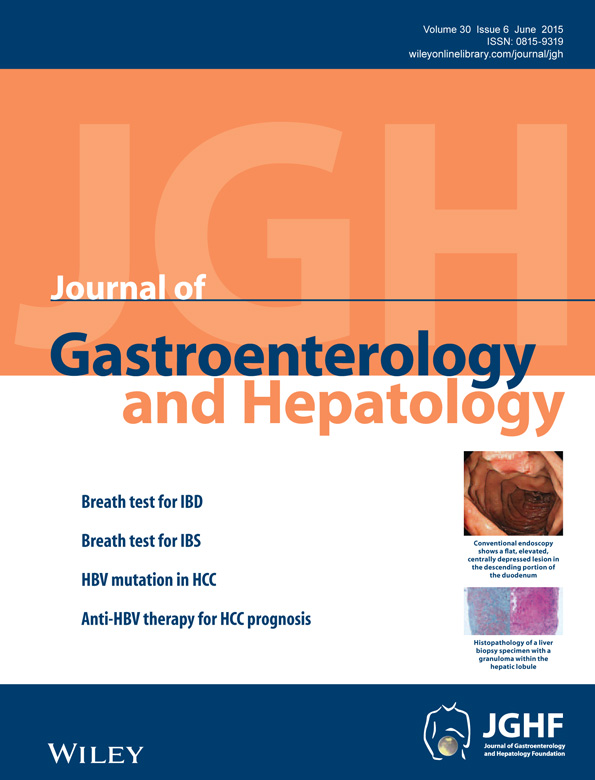Impact of IL28B and PNPLA3 polymorphisms on treatment outcomes in patients infected with genotype 6 hepatitis C virus
Declaration of funding interests:
This work was supported by the Research Fund for the Control of Infectious Diseases from the Food and Health Bureau of the Hong Kong Government (Reference no: CU-12-02-01).
Authors' declaration of personal interests:
Grace Wong has served as an advisory committee member for Otsuka and Gilead. She has also served as a speaker for Abbvie, Bristol-Myers Squibb, Echosens, Furui, Gilead, Janssen and Otsuka.
Authorship statement:
Grace Wong, Henry Chan, and Vincent Wong were responsible for the conception, design of the study and the development of methodology. Grace Wong, Henry Chan, and Vincent Wong were responsible for the clinical assessments and treatment monitoring of patients. Anthony Chan and Paul Choi were responsible for the histopathological assessment of liver biopsy samples. Grace Wong was responsible for performing transient elastography examination. Chi-Hang Tse was responsible for the laboratory work on host single-nucleotide polymorphisms. Grace Wong, Polly Chan, Joe Cheng, Jackie Cheng, Sharon Lau, Elbert Lee, and Justin Ma were responsible to the acquisition of data, statistical analysis, and interpretation of data. Grace Wong, Henry Chan, and Vincent Wong were responsible for the writing, review, and revision of the manuscript.
Abstract
Background/Aims
Interleukin-28B (IL28B) and patatin-like phospholipase domain containing 3 (PNPLA3) gene polymorphisms are associated with hepatitis C virus (HCV) clearance and fatty liver, respectively. We aimed to test if their polymorphisms are associated with virologic responses in Chinese chronic hepatitis C (CHC) patients.
Methods
This was a retrospective-prospective cohort study. Consecutive patients infected by genotype 1 and 6 HCV received antiviral therapy were included. Host IL-28B rs12979860/rs8099917 and PNPLA3 rs738409 genotype were tested. The primary outcome was sustained virologic response (sustained virologic response [SVR]: undetectable HCV RNA 24 weeks post-treatment).
Results
From 305 patients had positive antibody to HCV, 52 and 31 patients infected by genotype 1 and 6 HCV, respectively were recruited. Mean age was 58 ± 11 years; 70% were male. Mean baseline HCV RNA was 6.8 ± 2.7 log IU/ml. The SVR for patients infected by genotype 1 and 6 HCV was 67.3% and 90.3%, respectively. The proportions of IL28B genotypes were 78%, 21%, and 1% for TT/TG/GG at rs8099917, and 81%, 18%, and 1% for CC/TC/TT at rs12979860, respectively. The proportions of PNPLA3 rs738409 genotypes were 16%, 36%, and 48% for GG/GC/CC. IL28B genotype was significantly associated with SVR in patients infected by genotype 1 but not genotype 6 HCV, with 80% versus 38% of patients infected by genotype 1 achieved SVR carried TT versus TG/GG at rs8099917, respectively (P = 0.003). PNPLA3 genotype was not associated with SVR.
Conclusions
IL28B gene with rs8099917 T allele as an independent predictor of SVR in Chinese CHC patients infected by genotype 1 but not genotype 6 HCV.




